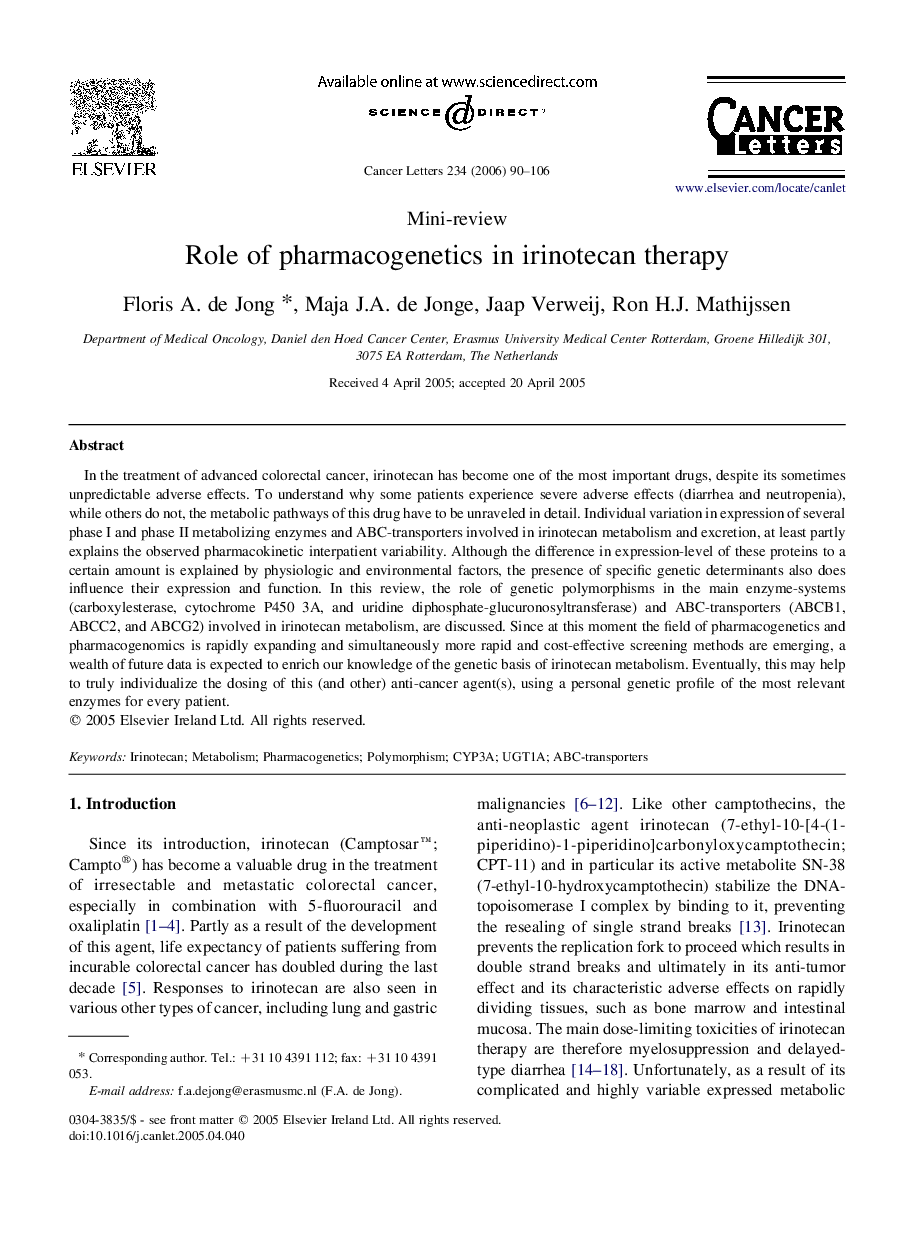| کد مقاله | کد نشریه | سال انتشار | مقاله انگلیسی | نسخه تمام متن |
|---|---|---|---|---|
| 2116935 | 1085042 | 2006 | 17 صفحه PDF | دانلود رایگان |

In the treatment of advanced colorectal cancer, irinotecan has become one of the most important drugs, despite its sometimes unpredictable adverse effects. To understand why some patients experience severe adverse effects (diarrhea and neutropenia), while others do not, the metabolic pathways of this drug have to be unraveled in detail. Individual variation in expression of several phase I and phase II metabolizing enzymes and ABC-transporters involved in irinotecan metabolism and excretion, at least partly explains the observed pharmacokinetic interpatient variability. Although the difference in expression-level of these proteins to a certain amount is explained by physiologic and environmental factors, the presence of specific genetic determinants also does influence their expression and function. In this review, the role of genetic polymorphisms in the main enzyme-systems (carboxylesterase, cytochrome P450 3A, and uridine diphosphate-glucuronosyltransferase) and ABC-transporters (ABCB1, ABCC2, and ABCG2) involved in irinotecan metabolism, are discussed. Since at this moment the field of pharmacogenetics and pharmacogenomics is rapidly expanding and simultaneously more rapid and cost-effective screening methods are emerging, a wealth of future data is expected to enrich our knowledge of the genetic basis of irinotecan metabolism. Eventually, this may help to truly individualize the dosing of this (and other) anti-cancer agent(s), using a personal genetic profile of the most relevant enzymes for every patient.
Journal: Cancer Letters - Volume 234, Issue 1, 8 March 2006, Pages 90–106